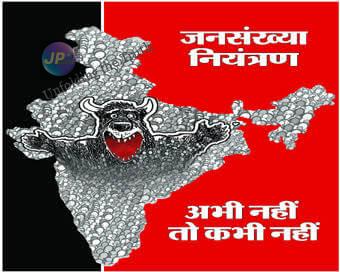Requests By Individual Judges Not To Use ‘My Lord’ And ‘Your Lordship’
By – Dinesh Singh Chauhan, Advocate
J&K High Court of Judicature, Jammu.
Introduction–
“You cannot force someone to respect you, but you can refuse to be disrespected”
A quote, by someone unknown, truly encapsulates the natural principle of human tendencies, which, in all circumstances, cannot be so regulated through Rules and Procedures, as the subjects are products of emotions largely, than of logic.
The fluid nature and fine line of distinguishable difference between respect and disrespect, tends to define the relations in personal and professional space, and is no different when it comes to how the Learned Counsels, Public Officials and other members of the Public, are found addressing the Honourable Judges in our country. As it is usually said, that the past will define the future, in many ways, India is still being subjected to adopted slavery with the carrying on of the British Courts’ undefined and unreasoned practices. It bears no doubt that many countries use titles for addressing the Honourable Judges in accordance with their customs and traditions. However, the use of the titles viz. ‘Your lordship / Ladyship’ and ‘Milord / My Lord’ to address the Honourable Judges in India, prevent us to give our Court system an identity of its own and a sense of belongingness ‘WE, THE PEOPLE OF INDIA’ desire.
As “Lordship” came to Indian shores with the cunning East India Company who sent tea, muslin and spices back to England in exchange for gifting us natives with the English Legal System, the British Isles may be a good point from where to begin our inquiry.
Locked in a love-hate relationship in perpetuity, England and France have an interesting connect with why we indeed say “miluds” or “milord” in Courts. It transpires that the French term “Millourt” for a Nobleman or a Rich Person, in use by 1430, was actually imported from across the English Channel and was a variant of “My Lord”. More than a Century later, around 1598, English Nobles brought back this term from the wanderings across continental Europe and it gained currency as a general form of reference of English Nobility! The Judges, who were also part of the House of Lords, naturally stood addressed in the manner Nobles of those times were.
Master Jacob of the Grey’s Inn had prepared an interesting note on forms of address of Judges in his country. His prefatory note is so refreshingly honest that it merits reproduction in toto.
“History has given us not only the Court System, but a bizarre and far from self- evident system of naming Judges. Some Judges are pompous enough to take umbrage if you get it wrong: certainly, it does not give a Judge confidence that you know what you are doing if you get it wrong or depart from convention. You may well think that a Judge who takes umbrage over this sort of thing is a silly old…You will be right – but your job is to represent your client so there is no point in annoying the old codger.”
Different Forms of Addressing Judges
By the Constitutional Reform Act, 2005, a Supreme Court of the United Kingdom was established, which displaced the House of Lords. The forms of address of Law Lords seemed to have been continued.
However, ‘address malfunction’ has plagued Lawyers and litigants forever. The local Grimsby Telegraph reported that one litigant greeted the Crown Court Judge David Tremburg with “Your Majesty”. Another litigant a few years ago had curtseyed Judge Leslie Hull. Over time, efforts have been made to move away from the conventions of the past. Chief Justice John Murray presided over the Superior Courts Rules Committee to decide that Judges would be addressed as “Judges” or “The Court”, when sitting with more than one Judge.
India, upon independence, opted for continuity in matters of the Judiciary. H J Kania and his team effortlessly transitioned from Judges of the Federal Court to our Supreme Court. An institution which was inaugurated in the Chamber of Princes chose to continue with the regal traditions the British had super-imposed on India’s Judicial System. This not only included the costume: robes and bands, but also the mode of address: Your Lordship. As it was years before India would get her first Lady Justice, the inherent gender contradiction of such an address was the last thing on anybody’s mind.
Relics Of The Colonial Past
In the Indian context, where the country’s social fabric is inter-woven with secularism and equality, if one studies the general parlance, the term ‘Lord’ is understood in terms of attributing the said title to Deities namely Lord Shiva (Hindus), Lord Jesus (Christians), Rabb/Allah (Lord and Master/God) – [Muslims] and others, and accordingly, the usage does not bear any semblance to any living personality in any manner. The status of faith and divine powers, could not have been so meant to be bestowed upon a living individual or group of individuals, and that too way by a select few, in the course of professional etiquettes, without having a wilful acceptance of the people at large. Such titles are though just ‘Honorifics’ as a matter of Court Practice, but may have a tendency to be wrongly understood in its extension or overlap with religious practices and sentiments of any or every community in India. Therefore, the compulsion to address the Honourable Judges as such, being a part of legacy and unwritten long-standing diktat, was to be shown the guided route in order to bring out a near uniform approach, consistent with the dignity and majesty of the Courts and largely, for the Justice Delivery System as a whole.
The role of the regulator of the legal profession, cannot be forgotten, and has to be valued both in terms of its Rule Making and Supervisory Duties towards the implementation of its Rules, Policies and Standards. The Bar Council of India is a statutory body created by Parliament to regulate and represent the Indian Bar. The Bar Council of India performs the regulatory function by prescribing standards of professional conduct and etiquette and by exercising disciplinary jurisdiction over the members of Bar.
“Law in India has evolved from religious prescription to the current constitutional and legal system we have today, traversing through secular legal systems and the common law. Secular law in India varied widely from region to region and from Ruler to Ruler. Law as a matter of religious prescriptions and philosophical discourse has an illustrious history in India. The Indian Bar had a role in the Independence movement that can hardly be overstated – that the tallest leaders of the movement across the political spectrum were lawyers is ample proof. The Constitution of India is the guiding light in all matters Executive, Legislative and Judicial in the country. It is extensive and aims to be sensitive. The Constitution turned the direction of system originally introduced for perpetuation of Colonial and Imperial Interests in India, firmly in the direction of Social Welfare. The Constitution explicitly and through Judicial interpretation seeks to empower the weakest members of the society. India has an Organic Law as consequence of Common Law System. Through Judicial Pronouncements and Legislative Action, this has been fine-tuned for Indian conditions. The Indian Legal System’s move towards a Social Justice Paradigm, though undertook independently, can be seen to mirror the changes in other territories with Common Law System. From an artifice of the Colonial Masters, the Indian Legal System has evolved as an essential ingredient of the World’s Largest Democracy and a crucial front in the battle to secure constitutional rights for every citizen.”
The Bar Council of India, made a serious attempt in the year 2006 post consideration of the observations of the Hon’ble Supreme Court of India in Re Progressive & Vigilant Lawyers Forum [W.P. (Civil) 40/2006] that the matter was to be decided by the Bar Council of India as how the Judges should be addressed, by exercising its powers under Section 49 (1)(c) of the Advocates Act, 1961, and made Rules on professional and etiquette standards to be observed by Advocates, in so far as it related to addressing the Honourable Judges in different Courts in the country and in furtherance thereof, Chapter IIIA to Part VI of the Bar Council of India Rules was added through a Resolution by the Bar Council of India. The relevant extract of the said Resolution is reproduced herein below, for ready reference:
CHAPTER-IIIA: To address the Court-
Consistent with the obligation of the Bar to show a respectful attitude towards the Court and bearing in mind the dignity of Judicial Office, the form of address to be adopted whether in the Supreme Court, High Courts or Subordinate Courts should be as follows: “Your Honour” or “Hon’ble Court” in Supreme Court & High Courts and in the Subordinate Courts and Tribunals it is open to the Lawyers to address the Court as “Sir” or the equivalent word in respective regional languages.
Explanation- As the words “My Lord” and “Your Lordship” are relics of a Colonial past, it is proposed to incorporate the above Rule showing respectful attitude to the Court.
The said Resolution was circulated Vide Letter bearing Ref. No. STBC (CIR) No.11/2006 dated 20.04.2006 by the Bar Council of India to the Secretaries of all the State Bar Councils and also to the Registrars’ of all the High Courts in the country, requesting them to circulate the said Resolution to all the Bar Associations in their States, and to others also, in order to give adequate publicity to the said Resolution among the Lawyers. Subsequent thereof, the same was published in the Gazette of India and officially came into force with effect from 06.05.2006, with its addition as Chapter IIIA in Part VI in the Bar Council of India Rules. But, where is the controversy now when the law is clear, concise and communicated to everyone, and calling out only for compliance?
The 2006 Rule discouraged the use of ‘My Lord’ and ‘Your Lordship’, and prescribed ‘Your Honour’ or ‘Hon’ble Court’ as an acceptable way for addressing the Supreme Court & High Courts, and ‘Sir’ in Subordinate Courts and Tribunals. But, the said distinction too is unnecessary as respect towards and faith reposed in the Judicial Office cannot be segregated in terms of the jurisdiction exercised, and the real difficulty has been created by our own Council by issuing a Press Release dated 23.02.2021 wherein it has been informed that:
“The BCI would like to clarify that as far as back on 28th September, 2019 on the request made by Office-Bearers of Bar Association of some High Courts with regard to the Advocates addressing the Court, it was resolved that as per mostly preferred and prevalent practice, Lawyers of the country be requested to address the Hon’ble Judges of various High Courts and Supreme Court as ‘My Lord’ or ‘Your Lordships’ or ‘Hon’ble Court’, while Lawyers of Subordinate Courts, Tribunals and other Forums may address the Court as ‘Your Honour’ or ‘Sir’ or the equivalent word in respective regional languages.”
Requests By Individual Judges Not To Use ‘My Lord’ And ‘Your Lordship’–
Over to the Judicial set-up with much flip-flops and varied approaches being witnessed, in the year 2019, the Hon’ble Rajasthan High Court, in its Full Court meeting had unanimously resolved to request the Counsels and those who appear before the Court to desist from addressing the Hon’ble Judges as ‘My Lord’ and ‘Your Lordship’, to honour the mandate of equality enshrined in the Constitution of India. Similarly, many Judges including Mr. Justice Ravindra Bhat, Judge, Supreme Court of India, Mr. Justice S. Muralidhar, Chief Justice, Orissa High Court, Mr. Justice Arun Kumar Tyagi, Judge, Punjab & Haryana High Court, Mr. Justice P Krishna Bhat, Judge, Karnataka High Court and Justice Tashi Rabstan, Judge High Court of Jammu & Kashmir & Ladakh, have asked, time and again, the Learned Advocates not to address them as ‘Lordships’. However, to the other side of the coin, being the Judicial side of adjudication of the said issue of addressing the Judges, a remark was found made by the then Chief Justice of India, Mr. Justice S. A. Bobde on 13.08.2020, wherein, the title ‘Your Honour’ was held to be inappropriate to be used in the Hon’ble Supreme Court of India, partaking the practice of the Court beyond and above the Law of the Land in force.
In 2014, a Writ Petition (Civil) No. 881/2013 titled “Shiv Sagar Tiwari Versus Secretary General SCI & Ors.”, was filed by a Lawyer Shiv Sagar Tiwari, seeking the ban on the usage of archaic expressions of ‘My Lord’, your Lordship’ and such others to be a symbol of slavery and against the dignity of the country, by terming the same as a ‘negative prayer’ and the Bench included Justice S. A. Bobde but was presided by Justice H. L. Dattu, where the Bench allowed to argue in person but the Writ Petition was dismissed, stating that the terms ‘My Lord’ and ‘Your Lordship’ had never been compulsory.
The matter was first listed before a Bench of Chief Justice P. Sathashivam and Justice Ranjan Gogoi. When an allegation was made that Petitions in the Supreme Court had been dismissed because he had not used the honorific “Lordship’. Justice Gogoi recused himself and the case was directed to be listed before another Bench and then the Court stated that in a rather scolding manner:
“When did we say it is compulsory? You can only call us in a dignified manner. To address the Court what do we want? Only a respectable way of addressing. You call us your Hon’our, it is accepted. You call Lordship it is accepted. How can this negative prayer be accepted by us? Don’t address us as Lordship. We don’t say anything. We only say address us respectfully. How can we direct the High Courts’ on your prayers? It is obnoxious. It is the choice of the Lawyer to address the Court. Why should we say that the Brother Judge should not accept being addressed as Lordship? We have not taken exception when you call us ‘Sir.”
Conclusion–
The practice of addressing Judges as “Your Lordship” or “My Lord” traces its origins to England and Wales where the High Court and Court of Appeals Judges are addressed like that since the Medieval era. The term “Lord” is itself feudalistic. In fact, it is a title for a British Prince or Sovereign of a Feudal Superior. When the British Colonialists formalized the Indian Legal System, they also extended this system of addressing the Judges to India. The British had formalized our legal system that is why addressing Judges as “Your Lordship” and “My Lord” became a matter or practice. However, the fact remains that India became a Constitutional democracy in 1950, while Britain is still governed by an unwritten Constitution. The Indian Legal System is governed by Rule of Law, while the English Legal System is a Constitutional Monarchy. India’s Rule of Law renders all citizens equal because no is above the law, irrespective of the status that a person enjoys. The supremacy of law is not as strictly enshrined in the English System as it is embodied in India. This is why the King/Queen is still considered Supreme in England and the system of Lords is essentially a manifestation of the Crown’s Supremacy. India being a more evolved legal system and an ardent follower of the Principles of Constitutional Supremacy and Constitutional Equality cannot adopt a system of appointing Feudal Lords. Addressing Judges as Lords is also a vestige of England’s Feudalism that has no basis in India. It is high time the practice of addressing the Judges as “My Lord” or “Your Lordship”, a Relic of the British Raj, ended. To an ordinary mind, it is a denouncement of the British Raj, but in substance it actually manifests abhorrence for the Medieval Era English Feudalism.
Simply the acceptance of the Rule framed by the Bar Council of India, by all the Hon’ble Judges is the fast forward solution, as to be practiced by the Learned Lawyers over a period of time, to make it a behavioral pattern in their Court Room exchange. The usage of terms or tiles like “Your Honour or “Hon’ble Court” or “Hon’ble Bench” or “Hon’ble Sir or Madam” in a respectful manner, which is reflected through body language of the person addressing, as a means of non-verbal communication, is a more appropriate and desirable way of addressing the Judges. The same should not be perceived as disrespectful and unconventional and should be left entirely to the discretion of the Learned Advocates, as respect through compulsion is no respect, whether or not, the same is given or received.
Note:- The article posted in by the author of this article. We try our level best to avoid any kind of abusive content posted by users. Kindly report to us if you notice any, jplive24@gmail.com












